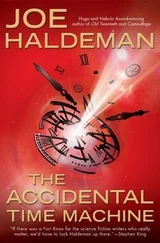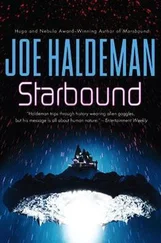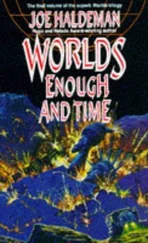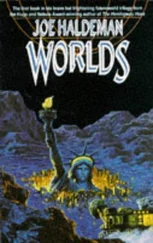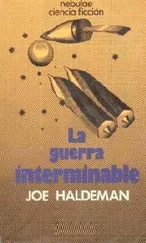Norm sat across from her with a small glass of wine. “I don’t know. Maybe we could talk our way out of it. What Qabil said is they think we’re agents for France—”
“We’ve never been to France!”
“Verdad. I think they know that. It’s just an excuse.”
“Was it before or after the assassination?”
“Just now. I think Qabil assumed I knew about the president dying.”
She shook her head. “State of emergency, I guess. But do you really think they can just call us spies and lock us up?”
“I don’t know. That’s what Qabil thinks. And he’s sort of in their line of work.”
“Oh, hell. Double hell.” She slid the water bottle back and forth in a small arc. “Is that port you’re drinking?”
“Get you some?”
“Ah, no.” She threw out the water and went to the refrigerator and squeezed herself a tumblerful of the plonk. “So what does your boyfriend recommend that we do?”
“He’s not my boy friend. He’s just looking out for us.”
“I’m sorry.” She sat down and leaned into her hands; her voice was muffled. “It’s been such a day.”
“And it’s just begun.”
She sipped the wine. “Qabil said?”
“He said we should disappear. Before night. Stay on local transport so we can pay cash, and make our way to a country that doesn’t need a passport.”
“Canada, Mexico, the Caribbean?”
“You’ll do it?”
“I’d like about thirty seconds to think about it.”
“Go ahead. I’m going to pack some music cubes.”
“Packing? You’d leave without me?”
“Of course not. I just want to be ready if you decide to go. I can hear the hounds yapping.” He found a cheap plastic box that held a hundred cubes, and started at the beginning, Antonini.
“Oh, hell. Put some jazz in there for me.” She stood up. “I’ll pack some clothes.”
“I already put out a few things. Warm weather?”
“Yeah. Canada doesn’t really appeal.”
He heard her opening and closing drawers, slamming them. “How about Mexico?”
“Cuba’s closer,” she said. “Some stuff I wanted to check there, too.”
He pulled a couple of handfuls of cubes from her jazz collection, totally random. “Cuba it is.” They would have to avoid the Orlando-Miami monorail, unfortunately; that was ticketed like a plane. Have to zigzag their way down.
He took the cube box and a small player into the bedroom and put them in his bag. Rory was almost packed, rattling around in the bathroom. “You have the sunscreen?” she said.
“Both kinds, yeah. Though I guess we could buy it in Cuba.”
Rory came out with a plastic bag of toiletries, put it in the travel bag, and zipped it closed. “So. You ready?”
“Yes.” He held out a hand. “I’ll take your bag.
“I can—”
“On my bicycle. We can’t risk a cab.”
“Oh, joy.” She handed him the bag. “Mother said if I married you I was in for a rough ride. But bicycling through the rain in December?”
“Fleeing the FBI. Sort of strains your sense of humor, doesn’t it.”
It wasn’t too bad, though. The rain was a cool mist, and they only had to go a mile, to the Oaks substation.
They left the bicycles unlocked, trusting that it wouldn’t take long for thieves to remove that particular bit of evidence of their flight, and walked into the venerable, not to say crumbling, mall.
It had seen better days, most of them more than a half century before. A whole block of stores had been demolished, their walls knocked down, to make space for a huge flea market, and that drew more customers than the low-rent purveyors of cheap imported clothing and sexual paraphernalia.
There was a weird youth subculture that had taken over one part—the beatniks, who dressed in century-old fashion and smoked incessantly while listening to century-old music. Rory liked the sound of it as they walked by, but it made Norman cringe. They had to go through there to get to the ATMs.
They thumbed two machines to get the maximum from different accounts, four thousand dollars each. The machines didn’t hold any denomination larger than one hundred, though, so they wound up with a conspicuously large wad of bills.
Rory looked around. “Uh-oh.” She turned back to the machine. “There’s a guy staring at us. From the café.”
Norm glanced sideways. “Yeah, I see him in Nick’s sometimes. Always writing in that notebook.”
“Yeah. Now that you mention it.”
 The historian
The historian
They don’t look like the kind of people who come down to the Oaks, he thought, familiar from somewhere. The Greek restaurant. He drank off the rest of his strong sweet coffee while it was still warm. He snapped his fingers twice to get the waitress’s attention—a very local custom—and shook a pseudo-Camel out of its package. He lit it with a wooden match and got a sudden rush of THC. Real tobacco must have been something.
He had been staring for a half hour at the image of .the Gainesville Sun for 24 November 1963, the last time a president had been assassinated. Maybe getting back to work would cut through the feelings of despair and helplessness. He had gotten up to the year before the year he was born.
He tried to ignore the old-fashioned but seductive Dave Brubeck chordings and rhythms, and toggled through the two old newspaper articles that were relevant to this part:
Local government found itself in a condition beyond chaos when, in the fall of 2022, the mayor, two city commissioners, and the entire county commission wound up in jail for violating a cluster of real-estate laws, mostly about zoning and eminent domain—but really about bribery on a stunning scale. The result of their machinations, the Alachua/Archer monorail, changed Gainesville irreversibly, in ways that not everybody agreed were bad.
City revenues declined as industries moved north to Alachua and south to Archer, for cheap real estate and tax relief. But the net result was to give the city back to the university, making it again the college town it had been for most of the twentieth century.
There was a short but intense crime wave in 2023, which led to a five-year suspension of the fraternity system at UF, when it was discovered that four of the fraternities had aligned themselves with individual street gangs. They would pinpoint lucrative robbing sites and then help the boys hide and “fence” the stolen goods. In exchange, they took a percentage of the ill-gotten gains, and bought alcohol for the boys (at the time, the drinking age in Florida was twenty-one), as well as illegal ammunition, which is what led to the discovery. The federal program of “tagging” ammunition had begun secretly, and the so-called Gunfight at the Gainesville Garage was one of the first times it had been used as evidence.
Two policemen and five members of a gang called the Hairballs died in the altercation, and the gang’s ammunition was traced to a member of the Kappa Kappa Psi fraternity, who, under interrogation, detailed the depth and breadth of the fraternity’s involvement with the gang, and implicated the three other fraternities…
in December 
An unprecedented heat wave scorched Australia and New Zealand, thousands of people and millions of cattle and sheep dying in the heat and drought. Canada and Alaska and northern Europe all suffered protracted blizzard conditions, which took hundreds of lives.
The war in Europe entered into an uneasy truce, the peace talks moving from Warsaw to sunny Rome, as troops on various borders scraped ice and snow off their war machines, and then went back to huddle around fires. The peace was partly due to logistics—no one was really prepared to fight in an unrelenting blizzard—and partly due to apocalyptic suspense as the calendar counted down to the Coming.
Читать дальше
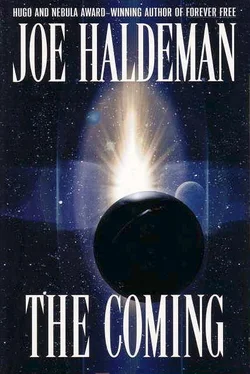
 The historian
The historian
